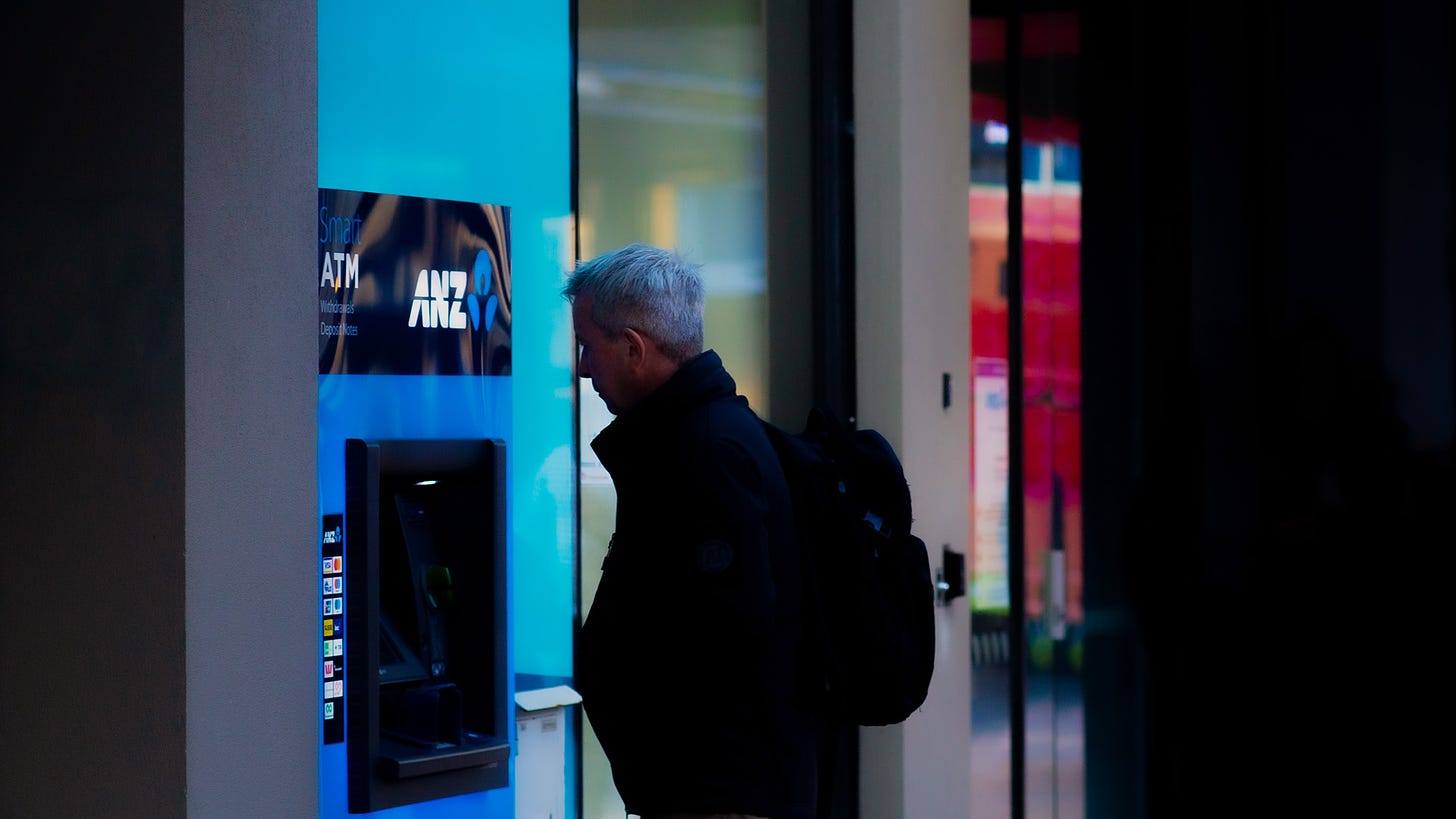Economists call for faster rate cuts as the recent slowdown in economic activity outpaces the 2008 recession
20th Sep 24, Dan Brunskill
New Zealand has been experiencing a recession as severe as the Great Recession following the Global Financial Crisis, at least in terms of economic output.
On Thursday, Statistics NZ reported gross domestic product (GDP) declined by 0.2% in the June quarter and was down 0.5% from the same time in the prior year.
These headline numbers might not sound too bad until you account for the 2% population growth over the same 12-month period. Annual GDP per capita fell by 2.7%, matching the largest annual decline seen during the 2008 recession.
There was a larger decline in GDP per capita during the pandemic in 2020, which was quickly offset by abnormally fast growth in subsequent quarters.
By contrast, June 2024 marked the seventh consecutive quarter of stagnant or declining per capita economic activity.
This dire run has only happened one other time in recent history: during the Great Recession.
Except this time it is arguably worse. GDP per capita dropped 4.3% across the seven quarters beginning in December 2007, compared to 4.8% in the period ended this June.
New Zealand seems to be experiencing a second Great Recession. We may need to rename the 2008 downturn—similar to how the ‘Great War’ was eventually recast as World War I.
This argument is supported by the Reserve Bank’s forecast of two more quarters of flat or negative GDP growth.
On the other hand, while the economic slowdown has been more severe than in 2008, other indicators suggest this downturn may not be as damaging.
Unemployment nearly doubled to 6.6% during the First Great Recession but is expected to peak at 5.4% in this cycle.
The Reserve Bank (RBNZ) also forecasts wage growth to be stronger and the economic recovery to be quicker—partly because the 2011 Christchurch earthquakes prolonged the slowdown.
However, these are only projections, and the outlook could still worsen.
Nic Guesnon, an economist at UBS, said high-frequency economic activity indicators had stabilised enough to suggest a downward spiral would ‘probably’ be averted.
“The [GDP] data will likely come as a relief to the RBNZ, which was concerned there could be an even larger drop based on timely activity indicators and business surveys.”
UBS expects another decline in GDP for the September quarter and predicts the central bank will cut the Official Cash Rate (OCR), currently at 5.25%, to 4.5% by year-end to prevent further declines.
Brad Olsen, principal economist at Infometrics, suggested the stronger June result might set the stage for a weaker performance in September, as the economy was still contracting.
Leading us out
Meanwhile, across the Pacific Ocean, policymakers at the US Federal Reserve voted to cut benchmark interest rates from 5.5% to 5% in response to weakness in the job market.
Stephen Toplis, head of market research at BNZ, said the RBNZ should continue cutting interest rates steadily, with the aim of bringing them below 3% sooner rather than later.
“With the GDP data, and the Fed’s move this morning, surely any talk that the Reserve Bank might pause in its cycle any time soon should be abandoned,” he wrote in a note.
“The economy is unequivocally weak. Throw away the concept that you need two quarters of negative growth to be in a recession. We’re in a recession, and have been for almost two years.”
In Parliament on Thursday, politicians were working to shape the narrative surrounding the recession and position themselves ahead of the recovery.
Finance Minister Nicola Willis was quick to take credit for the August OCR cut but suggested that inflation and the central bank should be held responsible for the weak June data.
Willis said in a press release, “Today’s GDP data confirms what we already know—that the economy has been suffering from the after-effects of a prolonged cost of living crisis, with the Reserve Bank forced to keep rates high to combat inflation”
Barbara Edmonds, the Labour Party’s finance spokesperson, argued the GDP data showed the Government was not fulfilling its promise to grow the economy.
“Almost a year into her tenure as Finance Minister it’s time Nicola Willis took some responsibility, invested in growing the economy and stopped the cuts,” she said.
Economic textbooks may recommend increased government spending during a recession, but there is little room for this now. The Crown is already running a deep deficit and carrying a heavier debt burden than in previous decades.
The ultimate depth and duration of this second Great Recession will likely hinge on monetary policy rather than government intervention.



Count on nothing getting better Pray 🙏🙏🙏